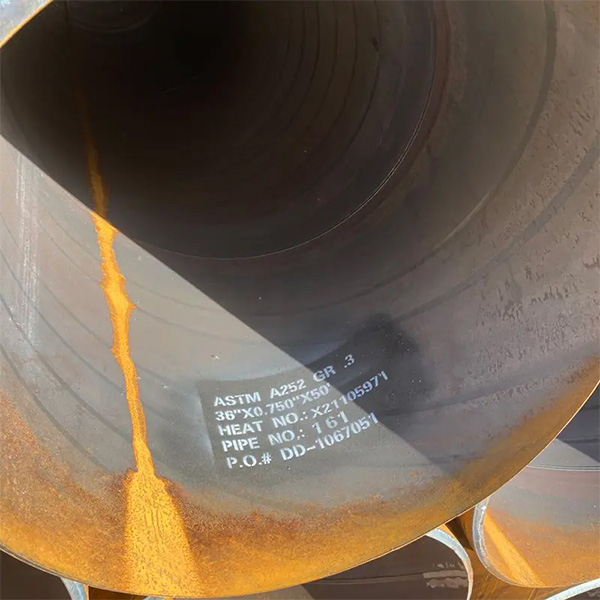When it comes to building and structural applications, material selection is critical to ensure safety, durability, and performance. One material that is highly respected in the industry is ASTM A252 Grade 3 steel. This specification is particularly important for the manufacture of pipe piles used in deep foundations, making them an essential component in a variety of construction projects.
ASTM A252 is a standard specification developed by the American Society for Testing and Materials (ASTM) that outlines the requirements for welded and seamless steel pipe piles. Grade 3 is the highest strength grade in this specification, with a minimum yield strength of 50,000 psi (345 MPa). This makes it ideal for applications that require high load-bearing capacity and resistance to deformation.
One of the main advantages of ASTM A252 Grade 3 is its excellent weldability, which allows for efficient fabrication and installation. The chemical composition of this steel includes elements such as carbon, manganese, and silicon, which contribute to its strength and toughness. In addition, the material can withstand harsh environmental conditions, making it suitable for use in marine and other challenging environments.
In fact, ASTM A252 Grade 3 is often used in the construction of bridges, buildings, and other infrastructure projects that require deep foundations. Its ability to support heavy loads while maintaining structural integrity is critical to the longevity and safety of these structures.
In summary, ASTM A252 Grade 3 steel is a key material for the construction industry, providing the strength and durability required for deep foundation applications. Understanding its characteristics and benefits can help engineers and contractors make informed decisions when selecting materials for their projects, ultimately resulting in safer, more reliable structures.
Post time: Nov-23-2024

